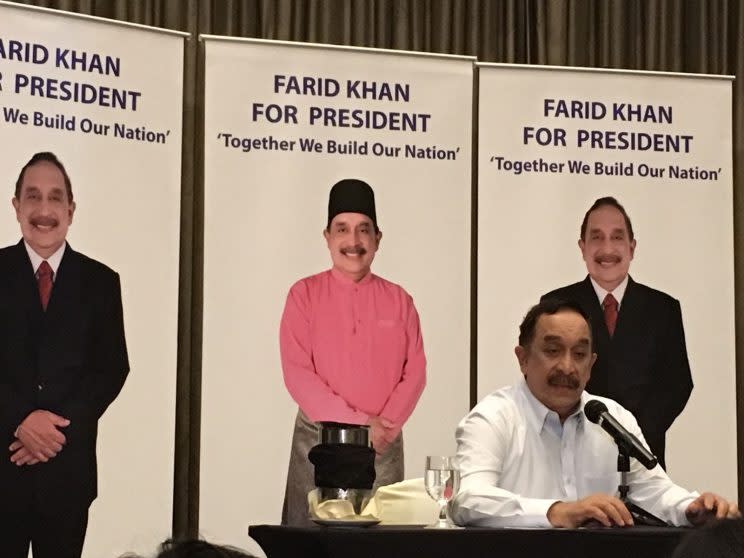COMMENT: Am I Malay enough to be the next President?

I enjoy my nasi lemak and I aced my Malay language examinations at PSLE, ‘O’ and A levels. I look just like the average Malay man. I celebrate Hari Raya Puasa. I even wrote for Singapore’s only Malay newspaper for four years. But for all that, in the eyes of many in the community, I am still not Malay enough.
Just like presidential hopeful Farid Khan, my identity card states that I am Pakistani. You see, my late paternal grandfather came from Pakistan and married a local woman. My father, who looks slightly more Pakistani than me, followed in his father’s footsteps and married a Javanese woman.
If I were to throw my hat in the ring for this year’s presidential election, which is reserved for Malays, that would be the biggest obstacle. Aside from the fact that I have never managed a company worth $500 million and I am only 39, whereas a presidential candidate must be at least 45 years of age.
Even the authorities do not think I am Malay. When I went to university, I applied for a study loan from Mendaki, but it was rejected on the grounds that I am Pakistani, not Malay. They sent me to the Indian self-help group Sinda, which also rejected me, as I am not Indian – and referred me to Mendaki.
It gets very confusing, this racial identity thing.
He is NOT Malay

I have been covering the run-up to the presidential election for a while now and each time I speak to people on the ground, many are confused by the term “Malay candidate”. Following my interview with Salleh Marican in June, friends asked me if he was Malay and pointed to the fact that his surname is more associated with the Indian community.
I tried to argue that Salleh is part of the Malay community and that he has been contributing not only to the Malay community, but other races in Singapore as well. However, most of them refused to look beyond the race issue. Most of the time, the conversation abruptly ends with, “He is not Malay”.
After Yahoo News Singapore‘s coverage of Farid’s press conference, when he announced his intention to run for the highest office in the land, I was bombarded with calls and messages asking about the potential candidate’s race.
“He has the same surname as you, which means you too can run for the presidency!” a friend of mine quipped a few days after the press conference.
What makes one Malay?
So what makes a Malay candidate?
This year’s presidential election is reserved for “person(s) belonging to the Malay community. According to Article 19B of the Singapore Constitution, which deals with reserved elections for communities that have not held the office of President for five or more consecutive terms, this means “any person, whether of the Malay race or otherwise, who considers himself to be a member of the Malay community and who is generally accepted as a member of the Malay community by that community”.
By that definition, both Farid and Salleh would qualify to run. Both candidates still have to be assessed by a five-member panel, a sub-committee of the Community Committee, which will determine if prospective candidates belong to the Malay community. But judging by the reactions I have seen on the ground, official – and often arbitrary – definitions do not quite answer complicated questions of race and identity.
It is worth noting that there are many politicians of mixed heritage representing the Malay community, such as Speaker Halimah Yaacob (Indian/Malay parents), who is widely considered to be a strong presidential contender should she run. The likes of Minister for Muslim Affairs Yaacob Ibrahim and Members of Parliament Faishal Ibrahim and Fatimah Lateef also have Indian heritage. As far as I know, this is not an issue for the Malay community.
Perhaps it is down to the fact that this presidential election is reserved specifically for Malays that definitions and labels become ever more important. Hopefully, it does not become a divisive issue.



